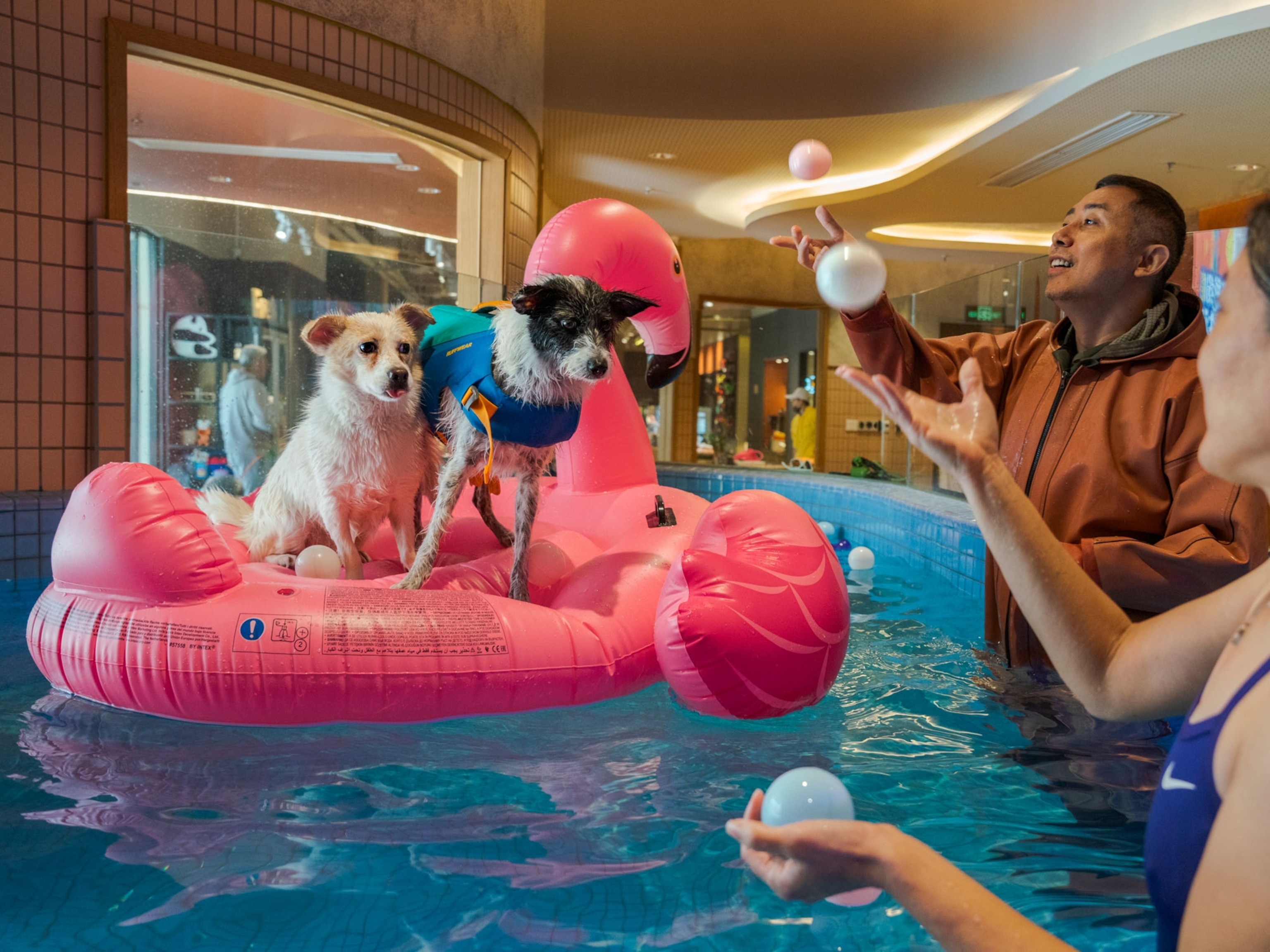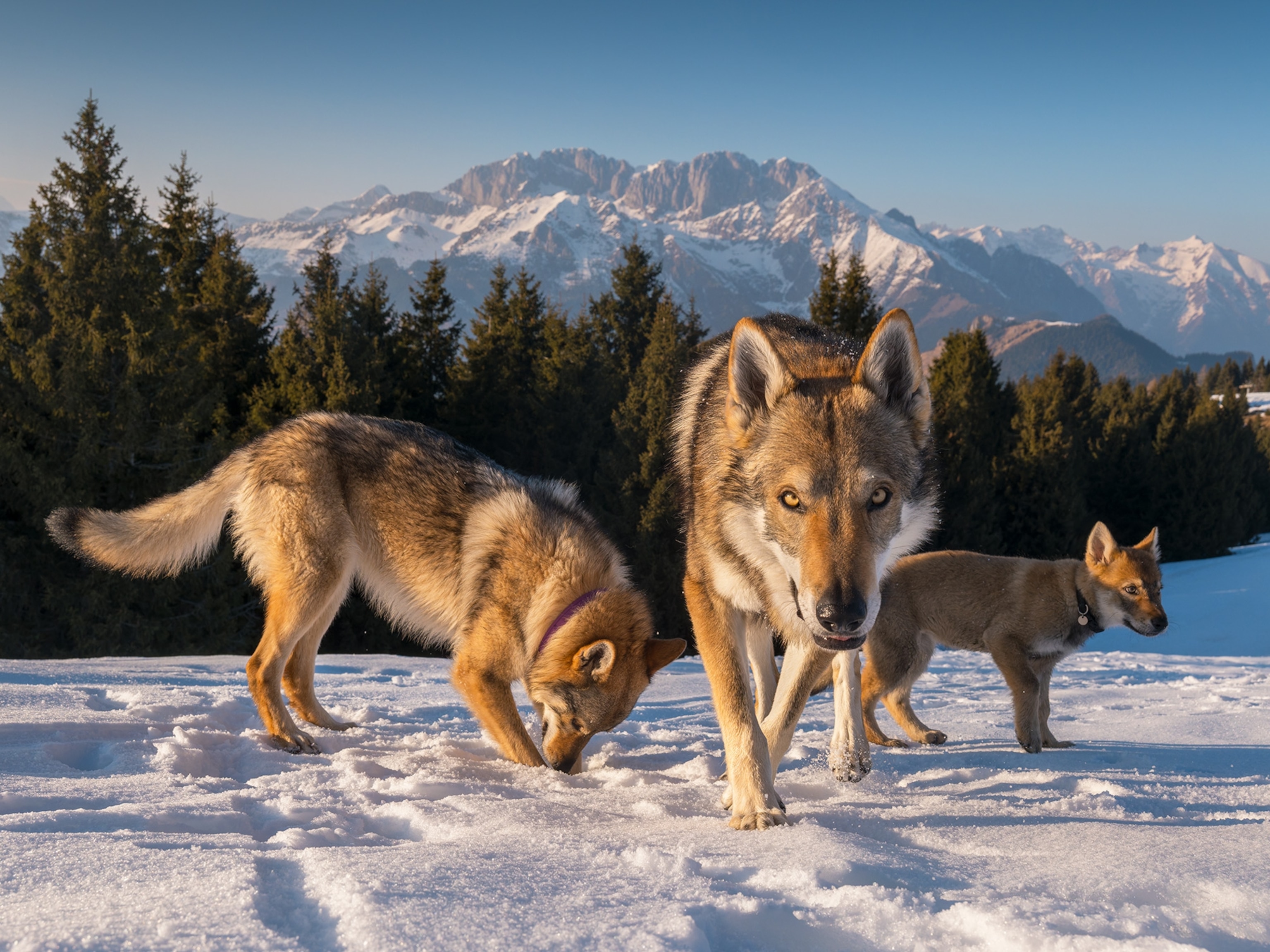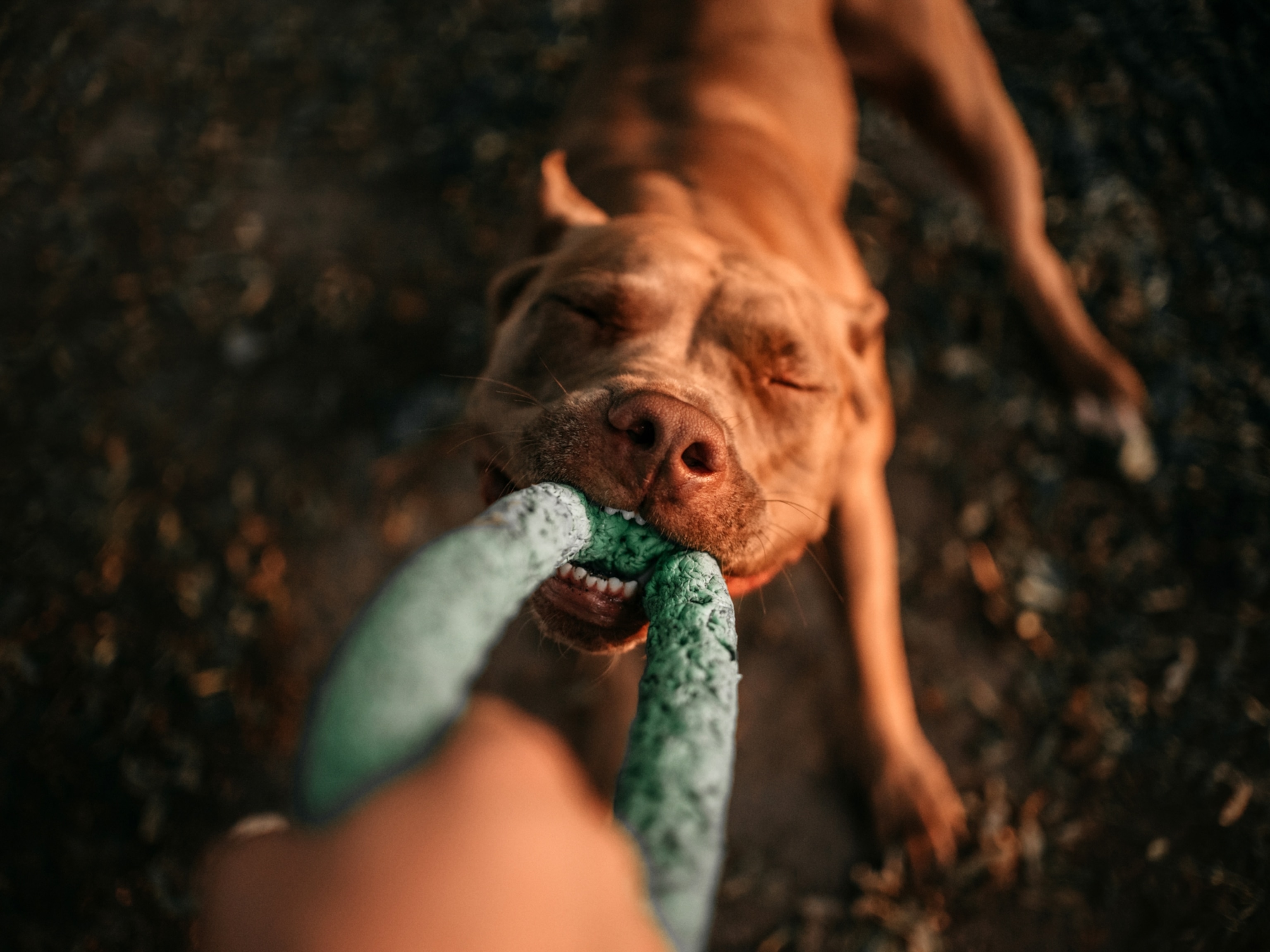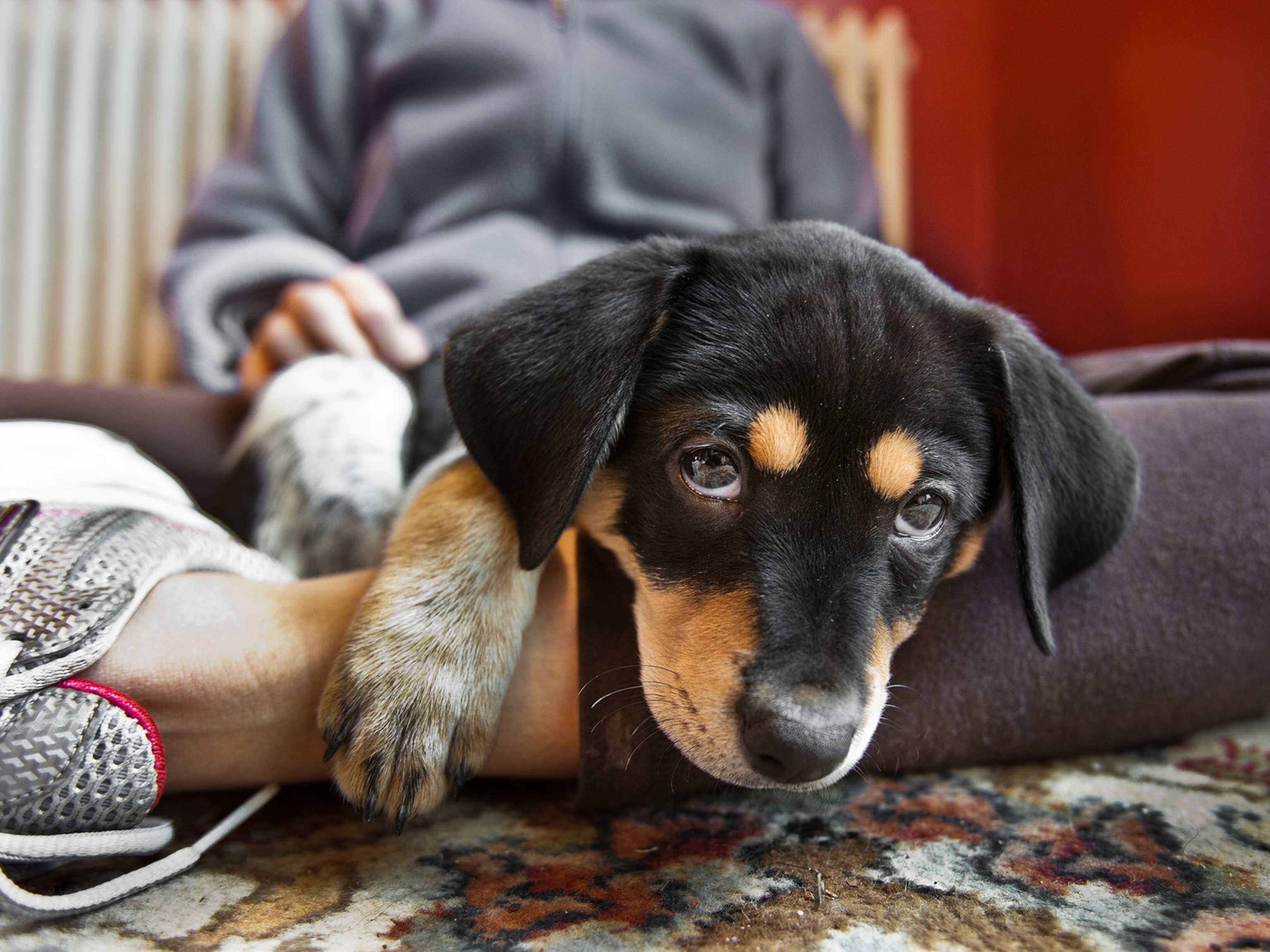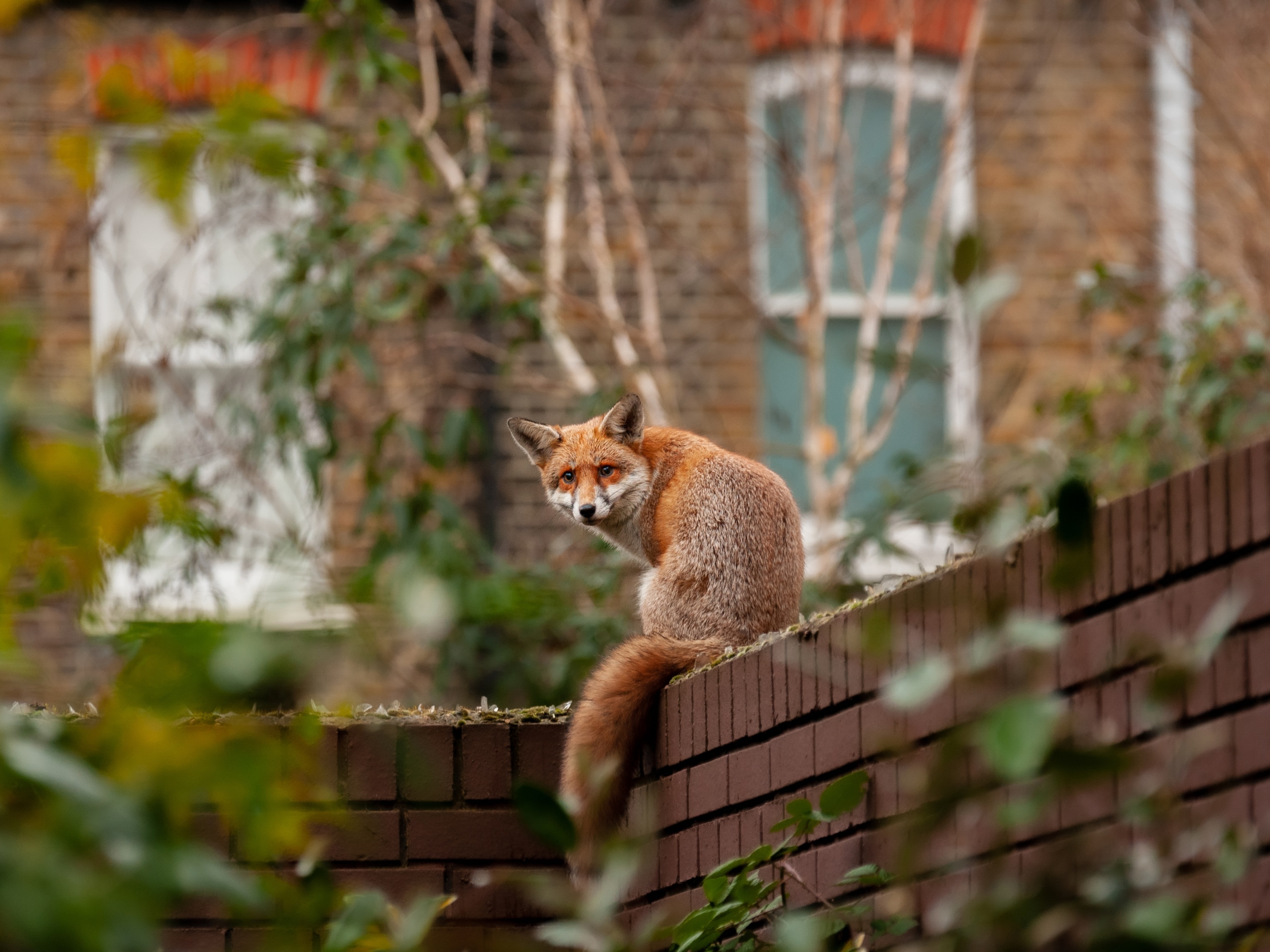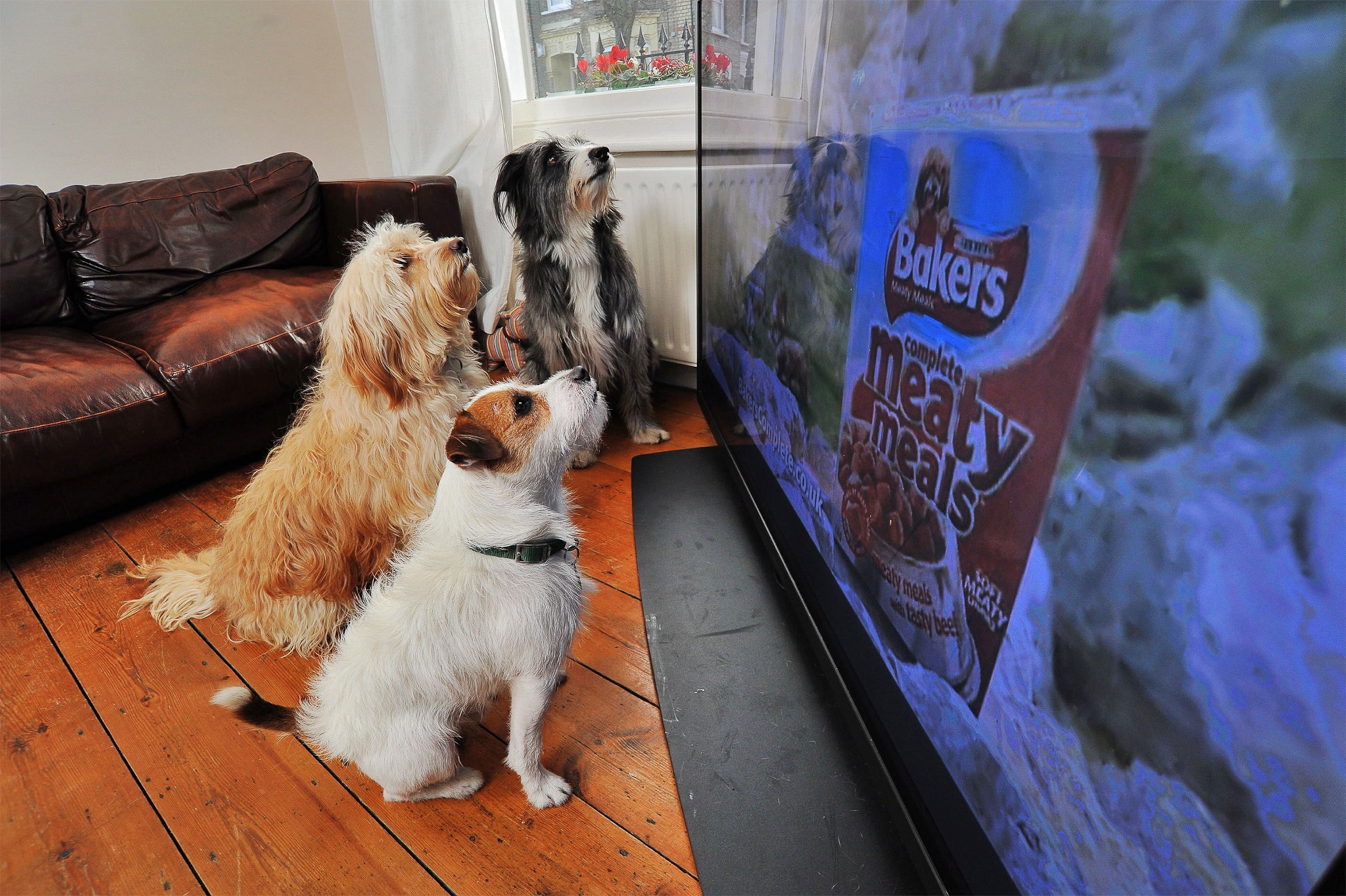
Why Do Dogs Watch—and React to—TV?
Just like humans, their response to the tube depends on their personality, experts say.
Our first Weird Animal Question of the Week of 2015 comes to us from our very own photo editor Mallory Benedict, who's curious about why her sister's poodle pays such rapt attention to the television.
"He totally loses it when there's any kind of animal on TV. How does he recognize animals on TV, and why does he have such a strong reaction?" Benedict asked.
Domestic dogs can perceive images on television similarly to the way we do, and they are intelligent enough to recognize onscreen images of animals as they would in real life—even animals they've never seen before—and to recognize TV dog sounds, like barking.
A 2013 study published in the journal Animal Cognition showed that dogs could identify images of other dogs among pictures of humans and other animals, using their visual sense alone. (Also see "OCD Dogs, People Have Similar Brains; Is Your Dog OCD?")
However, there are some differences between ourselves and man's best friend—for one, dogs' eyes register images more quickly than do ours. So older television sets, which show fewer frames per second than modern televisions, would appear to a dog to be flickering like a "1920s movie," said Nicholas Dodman, a veterinary behaviorist at Tufts University, in Massachusetts.
Dogs also have dichromatic vision, which means they see a range of two primary colors, yellow and blue. Human vision is trichromatic, so we see the full range of colors, according to Binghamton University's Ask a Scientist web page.
DogTV, an HDTV cable channel designed for dogs, interests canines because HDTV has a much higher number of frames per second and is specially colored to accommodate dogs' dichromatic vision, said Dodman, who is the channel's chief scientist. (See National Geographic's best dog pictures.)
DogTV has modes for relaxation, which shows images like dogs chilling out in a grassy field; stimulation, which depicts scenes like dogs surfing in southern California; and exposure which shows things like a dog reacting to a ringing doorbell and obeying commands to acclimate them to such situations at home.
Doggie Style
Beyond biology, how dogs react to TV—whether it's running around, barking excitedly, or just ignoring it—may come down to personality or breed.
"Different dogs, like people, have different personalities," Dodman said. "Some are territorial, some are not; some like people, some hate people; some are predatory, some aren't; some are pushy, some are shy.
"It takes all types of dogs to make the world go round," he added.
Hearing a barking dog on the set often gets TV-watching dogs excited. (Check out this YouTube video of a German shepherd that barks only when another dog appears on the TV, totally ignoring those boring humans.)
Some dogs not only bark at animals on the screen, but also run behind the TV looking for them.
Others "have been desensitized to television. When they see a dog [on TV], they [may] think, 'Those guys just hang out on the television. They never actually walk around,'" Dodman said. (Take National Geographic's dog quiz.)
What breed a dog is may influence its reactions to TV. Hounds, which are driven by smell, aren't as interested in visuals, but herding breeds, such as terriers, may be more stimulated by moving objects they see on the small screen.
Watch Dog
Many of us leave a radio or TV on when we leave the house to keep our dog company, hoping that the sound is more comforting to our pets than silence, Dodman said.
Channels that feature animals might be preferable to news programs, but, like many humans, dogs often just half-watch TV anyway.
"They orient to things they're interested in, look at it for a couple of minutes and go 'hmm, interesting,' and then look away," said Dodman. Even so, "that's better than spinning your wheels all day while your owners are away."
First their own channel. Next they'll start tweeting #walkies.
Got a question about the weird and wild animal world? Tweet me or leave me a note or photo in the comments below. You can also follow me on Facebook.
